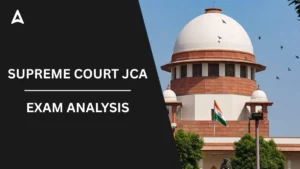Dear Readers,
The reasoning is a game of wits and presence of mind! Yes, it is true and it might seem as the greatest of the challenge after English Section’s surprises but yet this one can easily be dealt with. You just need correct practice and hardwire your brain to quickly make decisions about what to attempt and what to leave. And for same we are providing you questions of Reasoning Question and Answers. Solve these to Practice latest pattern reasoning question for bank exams.
Directions (1-5): Study the information and answer the following questions:
In a certain code language
“has been making steady” is coded as ” 44V 20L 16U 27Y “
“from moving the council” is coded as ” 15Q 25R 20L 19K”
“but only when state” is coded as ” 24F 37U 40N 22E “
Q1. What is the code for ‘raises’?
(a) 3U
(b) 38U
(c) 37V
(d) 37U
(e) None of these
Q2. What is the code for ‘agreement’?
(a) 21L
(b) 22L
(c) 21M
(d) 1L
(e) None of these
Q3. Which may be the possible code for”invite “?
(a) 15F
(b) 24F
(c) 14G
(d) 14F
(e) None of these
Q4. What is the code for ‘question’?
(a) 21K
(b) 31L
(c) 31K
(d) 31T
(e) None of these
Q5. What is the code for “opposition”?
(a) 30K
(b) 29L
(c) 9K
(d) 29K
(e) None of these
Directions (6-10): Each of the questions below consists of a question and two statements numbered I and II given below it. You have to decide whether the data provided in the statements are sufficient to answer the question. Read both the statements and given answer
(a) if the data in statement I alone are sufficient to answer the question, while the data in statement II alone are not sufficient to answer the question.
(b) if the data in statement II alone are sufficient to answer the question, while the data in statement I alone are not sufficient to answer the question.
(c) if the data either in statement I alone or in statement II alone are sufficient to answer the question.
(d) if the data given in both statements I and II together are not sufficient to answer the question.
(e) if the data in both statements I and II together are necessary to answer the question.
Q6. Point A is in which direction with respect to point Z?
I. Point A is east of point X. Point X is north of point Y. Point Z is in south-east direcion from point X.
II. Point Z is in east direction from point Y. Point Y is in south direction from point X.
Q7. How is L related to N?
I. K is daughter of L, and N is daughter of M. L and M are married couple.
II. Y is mother of M, who is sister of O.
Q8. P, Q, R, S ,T and U are six person of different height. Who among following is heighest?
I. R is taller than T and U. T is shorter than both Q and S. P is not tallest.
II. S is shorter than only two person. Q is taller than T and U. P and R is taller than Q.
Q9. What is the code for ‘run’ in a certain code language?
I. In that code language ‘ram run too fast’ is written as ‘po he ch to’.
II. In that code language ‘he can run very fast’ is written as ‘ha ni he ma po’.
Q10. Among Sonu, Rajeev, Golu, Ranjit, Amit and Mithilesh, who is on the immediate left of Golu when all of them are sitting in a row facing towards north direction?
I. Golu is sitting between Sonu and Amit, who is on the extreme right.
II. Golu is third to the right of Mithilesh and second to the left of Ranjit.
Directions (11-15): Study the following information carefully and answer the given questions.
There are eight family members, viz A, B, C, D, E, F, G and H are sitting around a circular table, facing the center but not necessarily in the same order. The following information is known about them.
F, the wife of D, is sitting third to the right of C. A is the son of H. A is sitting second to the left of D. D is an immediate neighbour of neither F nor C. No male is an immediate neighbour of D. G sits second to the left of D’s son. Only two persons sit between H and A’s brother. Neither C nor D is the brother of A. D’s son and the wife of D’s son are immediate neighbours of each other. F is the mother of H and is an immediate neighbour of neither B nor G. G is the sister of E.
Q11. Who is brother of A?
(a) C
(b) G
(c) F
(d) E
(e) D
Q12. How many female members are there in the family?
(a) Two
(b) Three
(c) Four
(d) Five
(e) None of these
Q13. Who among following sits exactly between F and B, when counted left of F?
(a) E
(b) D
(c) G
(d) C
(e) None of these
Q14. Who among following is wife of B?
(a) C
(b) F
(c) G
(d) H
(e) None of these
Q15. Who among following sits third to right of D’s son?
(a) E
(b) B
(c) H
(d) C
(e) A
You May also like to Read:





 GA Capsule for SBI Clerk Mains 2025, Dow...
GA Capsule for SBI Clerk Mains 2025, Dow...
 The Hindu Review October 2022: Download ...
The Hindu Review October 2022: Download ...
 Supreme Court JCA Exam Analysis 2025, Ch...
Supreme Court JCA Exam Analysis 2025, Ch...





